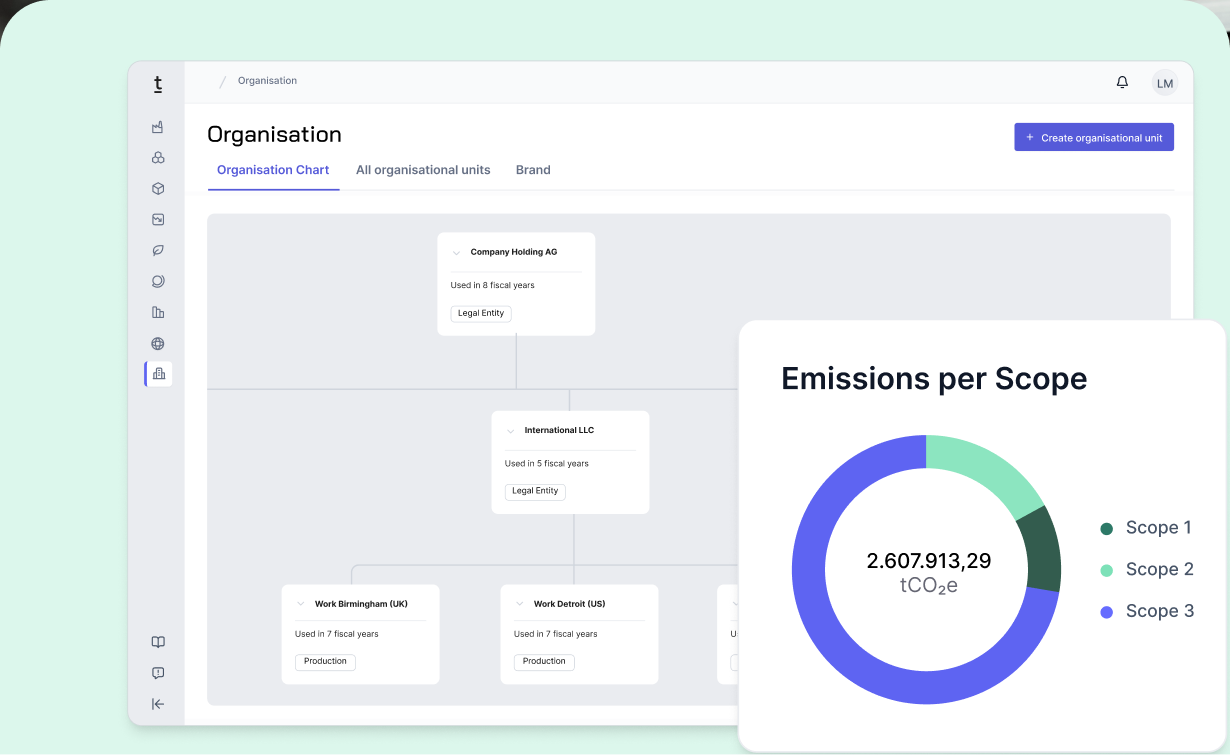EU Omnibus proposal: an overview of the recommendations for action for companies

The EU Commission's Omnibus proposal on CSRD offers companies more time to address sustainability reporting requirements. But how can this time be used effectively? Many companies are now asking themselves: wait and see, or act strategically? This article provides an overview of which companies should take action until when.
Status Quo: March 2025
The EU Omnibus proposal aims to harmonize and simplify existing regulations, including CSRD, CSDDD, the EU taxonomy, and CBAM. The objective is to reduce reporting obligations by at least 25% for large companies and by 35% for small and medium-sized enterprises (SMEs).
The draft proposes a delay in CSRD reporting requirements for large companies and recommends the voluntary sustainability reporting standard for SMEs (VSME) as a simplified framework for SMEs. The new thresholds for affected companies are as follows:
Companies with more than 1,000 employees and either annual revenue exceeding €50 million or total assets over €25 million.
While these revised criteria aim to simplify reporting obligations, uncertainties remain. The EU Commission’s initiative consists of proposals that must still be approved by both the European Parliament and the Council. Within the Parliament, there is opposition to several aspects of the proposal from various stakeholders.
In the coming months, it will become clearer how the Omnibus initiative will ultimately be implemented. However, it is already foreseeable that key elements—such as the postponement of reporting obligations—are likely to remain. A clear timeline for the adoption of changes by Parliament and Council has not yet been established.
VSME: a pragmatic reporting approach
The voluntary VSME (voluntary sustainability reporting standard for SMEs) offers a solution for companies no longer subject to CSRD requirements but still aiming to provide transparency to stakeholders. Within the supply chain, the VSME acts as a safeguard, or "value chain cap", against additional data requests: according to the EU Commission, companies in a value chain should not be required to disclose information beyond what is outlined in the VSME standard. Although voluntary, the VSME can help businesses efficiently meet both regulatory and market-driven demands.
Four key company types – and how they should act now

1. Large public companies
Omnibus status:
Companies with more than 1,000 employees (wave 1, NFRD) in Germany remain obligated to report under the NFRD framework, without mandatory assurance.
- CSRD reporting obligations (limited assurance) start from fiscal year 2024.
- Until CSRD is transposed into national law, NFRD applies in Germany.
- Companies with revenue exceeding €450 million are also subject to EU taxonomy reporting, even under NFRD.
Our recommendation:
Companies should continue CSRD reporting as planned. The timeline for publishing the first report under ESRS for fiscal year 2024 should be maintained to avoid restart and additional costs. Lessons learned from the first reporting cycle should be used to improve data quality and automation in key areas. In parallel, early preparation for assurance requirements in fiscal year 2025 is advisable. Companies should also clarify the audit standards with their auditors, as official guidelines are expected by 2026.
2. Large private companies
Omnibus status:
Companies with more than 1,000 employees (wave 2, postponed) will likely benefit from additional time but should not pause their sustainability initiatives.
- CSRD reporting obligations (limited assurance) are expected to start from fiscal year 2027.
- National transposition of CSRD is anticipated by 2026, providing legal certainty before 2027.
- Many companies are already preparing reports for fiscal year 2025 and conducting their double materiality analysis (DMA) or collecting data.
- Companies with revenue exceeding €450 million are also subject to EU taxonomy reporting.
Our recommendation:
Focus on key sustainability topics and use fiscal year 2025 as a preparation year, including conducting a DMA and publishing a voluntary, non-assured report. Evaluate any investments already made, considering potential restart and transition costs. DMA should serve as a tool to identify and prioritize strategic issues and risks. Reduce audit and control costs in the first year and apply the insights gained for fiscal year 2026. Invest in automated data management to lower long-term effort and costs. Sustainability goals and timelines should be reprioritized based on internal priorities, such as customer demands or efficiency objectives.
3. Public companies with fewer than 500 employees and private companies with fewer than 1000 employees
Omnibus status:
Public companies with fewer than 500 employees (wave 3, VSME) and private companies with fewer than 1000 employees (wave 2, VSME) are no longer subject to CSRD reporting requirements.
- No further CSRD reporting obligations apply (LSME* is irrelevant for wave 3 companies).
- Wave 2: many companies are already preparing reports for fiscal year 2025 and are currently conducting DMA or collecting data.
- Wave 3: some companies are preparing for reports in fiscal year 2026 and are in the DMA phase.
*LSME ESRS is a simplified standard for listed SMEs, small banks, and captive insurers (referred to collectively as "LSME"), offering an exemption from sectoral ESRS.
Our recommendation:
Do not stop ongoing processes but realign them. Focus on strategic priorities in collaboration with management, including clear timelines, resource planning, and milestones. Conduct a pragmatic DMA and a gap assessment for initial evaluation. For fiscal year 2025, we recommend publishing a VSME report. Prioritize identifying and managing climate risks, as these remain relevant for banks, insurers, and customer communications. Additionally, invest in efficient data management to meet various stakeholder demands while ensuring a reliable single source of truth for all sustainability data.
4. Public companies with 500 - 1000 employees
Omnibus status:
Public companies with 500 to 1000 employees (wave 1, NFRD) remain subject to NFRD requirements.
- No CSRD reporting obligations apply (yet).
- NFRD reporting is required (without assurance) until CSRD is transposed into German law.
- Many companies have already submitted their first reports, some even with assurance.
Our recommendation:
Consolidate current reporting activities and realign strategic priorities with management, including defining timelines, resources, and milestones. Conduct a pragmatic DMA and gap assessment for an initial evaluation. We recommend continuing ESRS-based reporting for fiscal year 2025 to remain aligned with potential regulatory changes. Focus on disclosing the most strategically important requirements in an "ESRS light" approach, aligned with the VSME standard. Minimize audit and control costs. Building efficient data management remains critical to address different stakeholder demands with a reliable single source of truth for all sustainability data.
Conclusion on Omnibus: use the time, don’t wait
The regulatory delay does not relieve companies of their responsibility. Sustainability remains a strategic core issue. Companies should use this time to optimize processes, improve data quality, and proactively address relevant sustainability topics. Those who act now will secure long-term competitive advantages and remain resilient to future requirements.
Implement CSRD and VSME with Tanso
Tanso supports mid-sized industrial companies in preparing their sustainability reports—whether under CSRD or VSME. The software enables flexible reporting in line with the preferred standard and leverages data synergies for efficient implementation.












































.avif)







.jpg)
.jpg)




















-p-800.webp.avif)
-min-p-800.webp.avif)






-p-800.webp.avif)

